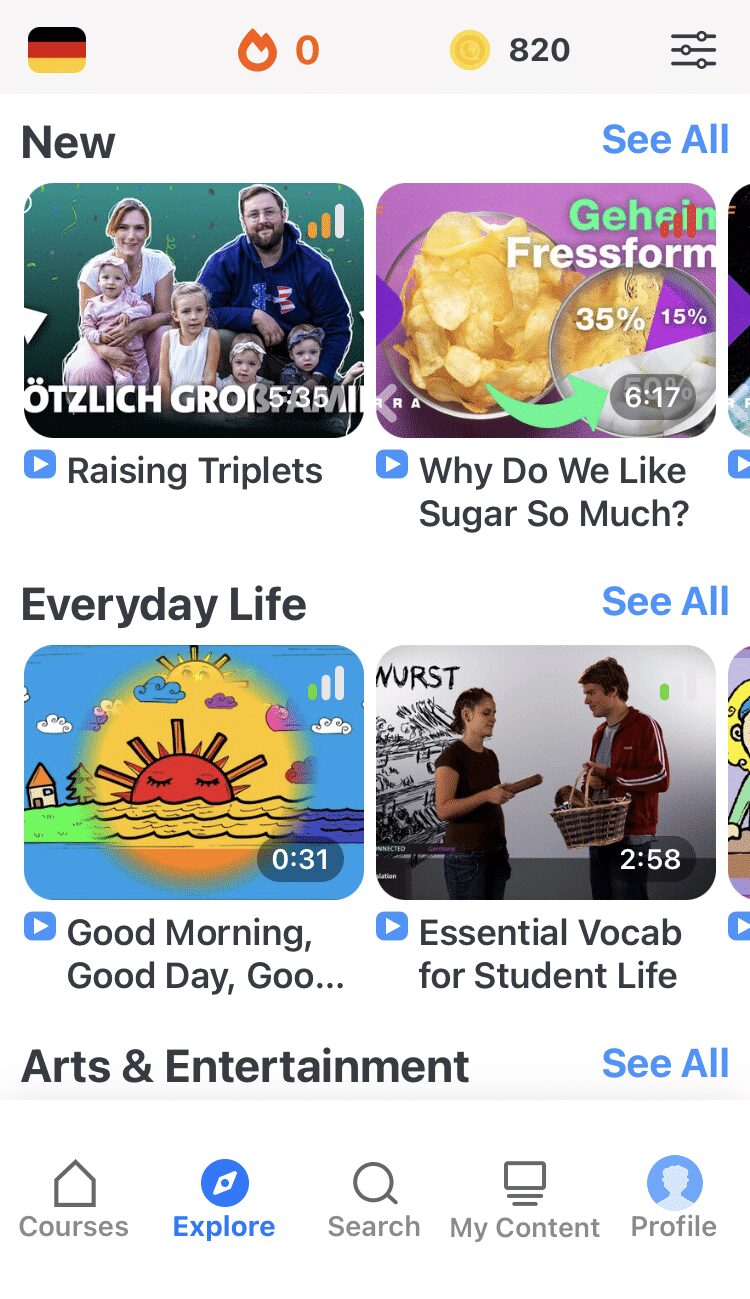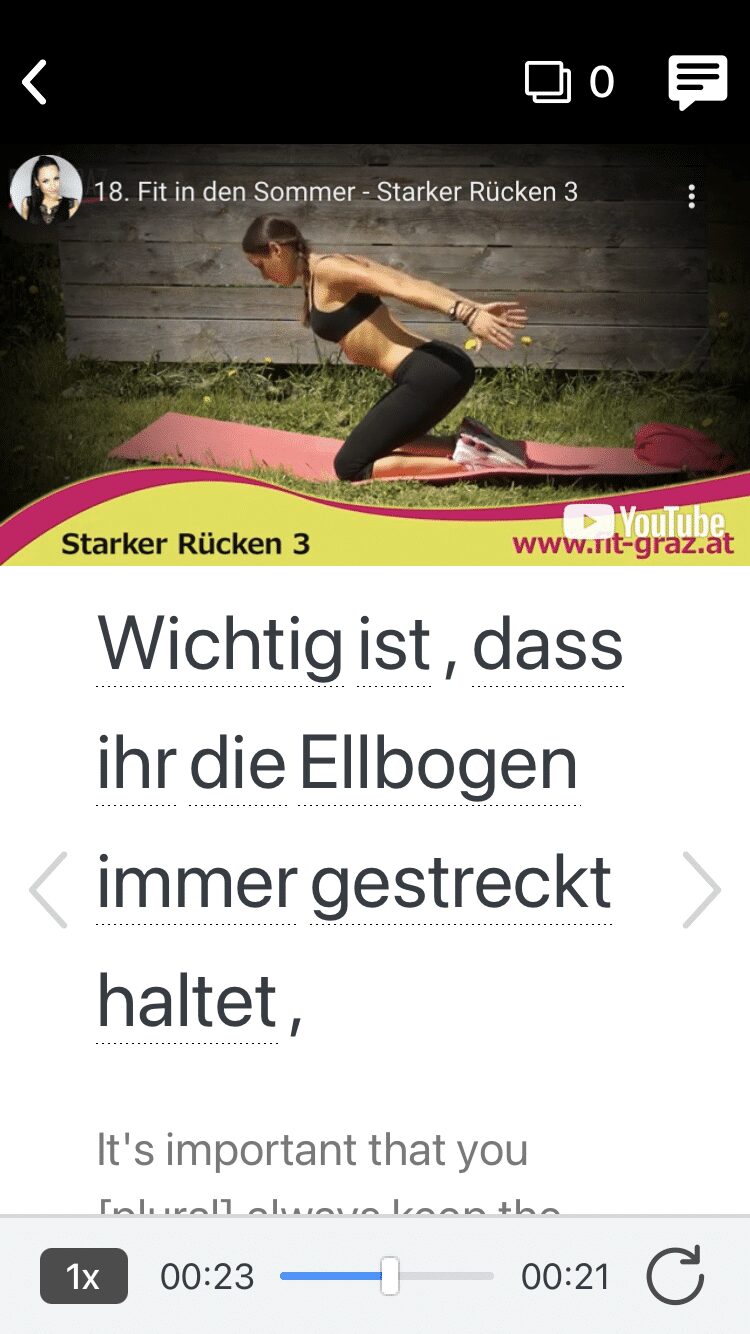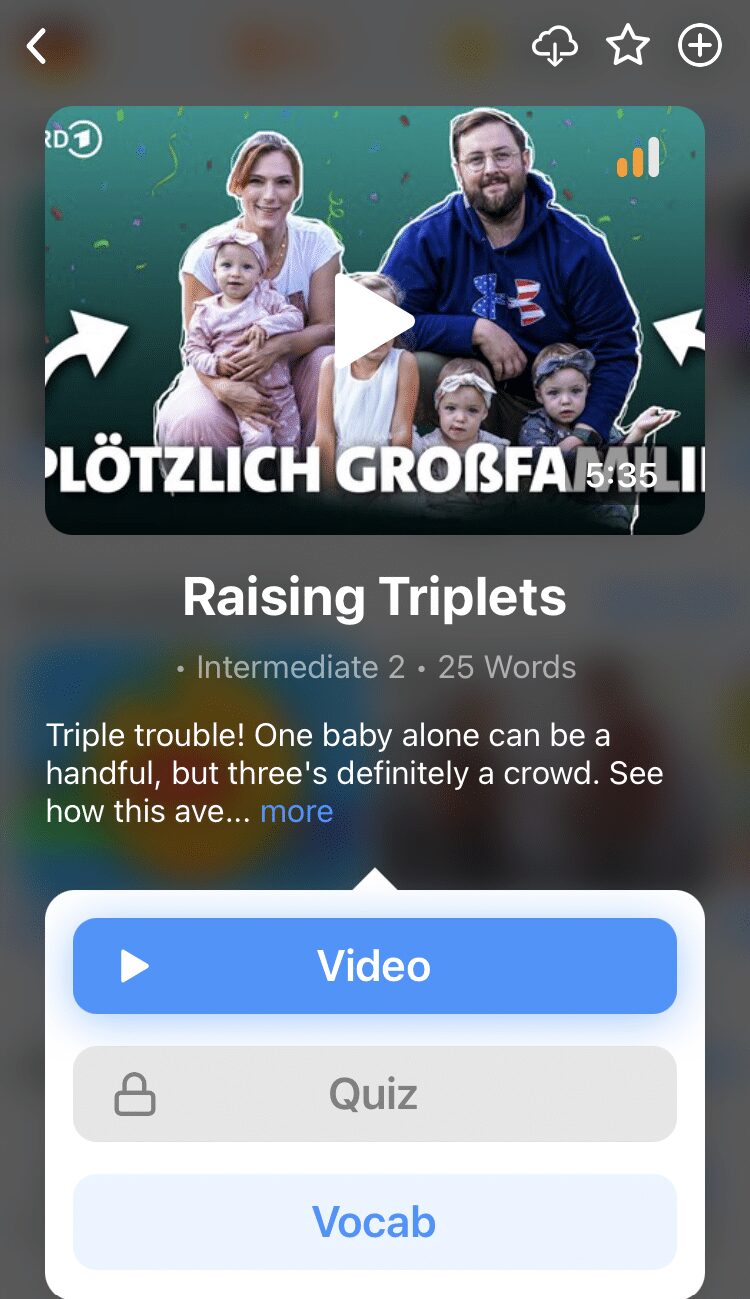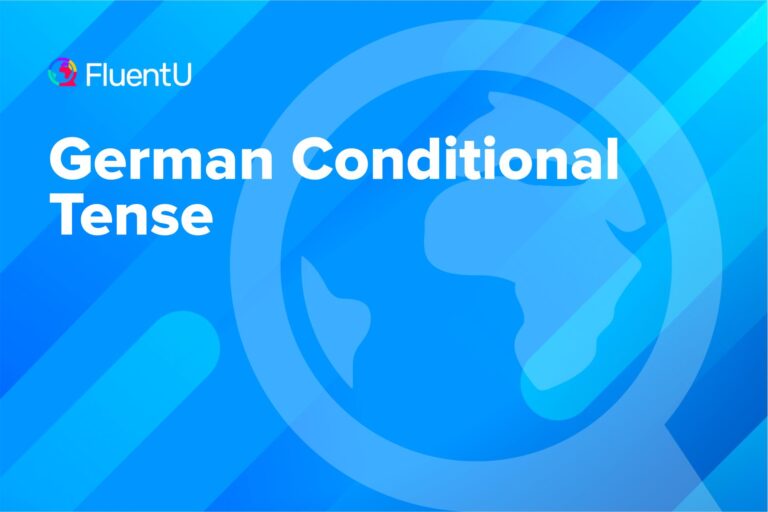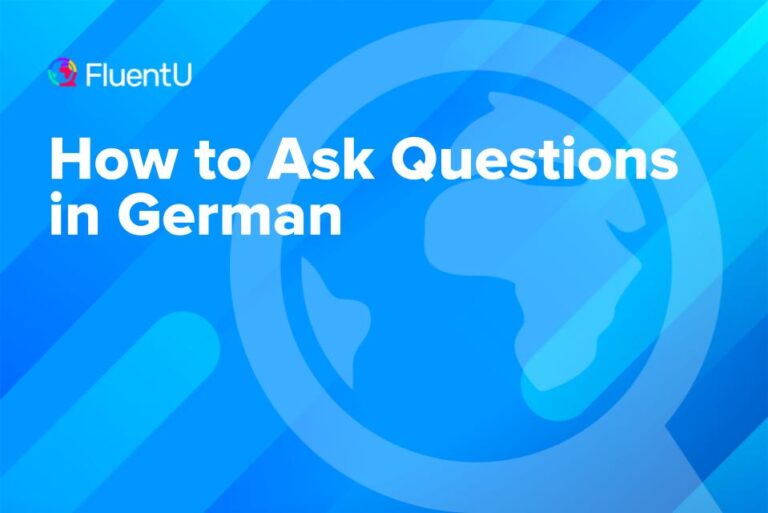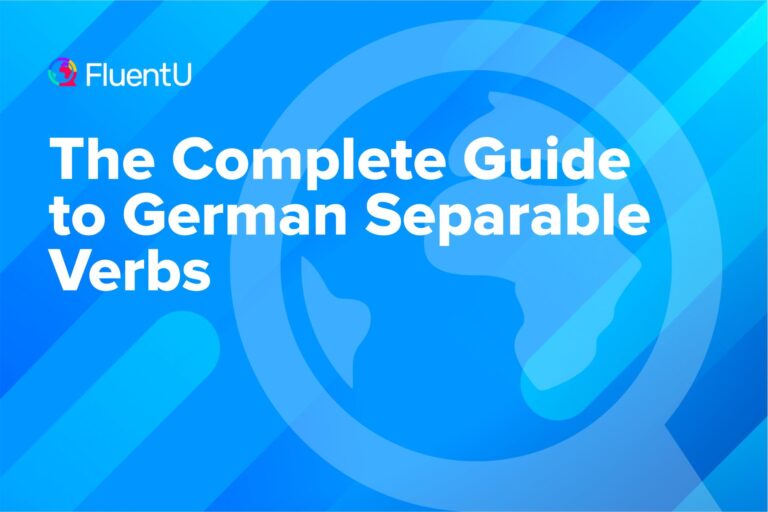Talking About School in German: 98 Words and Phrases
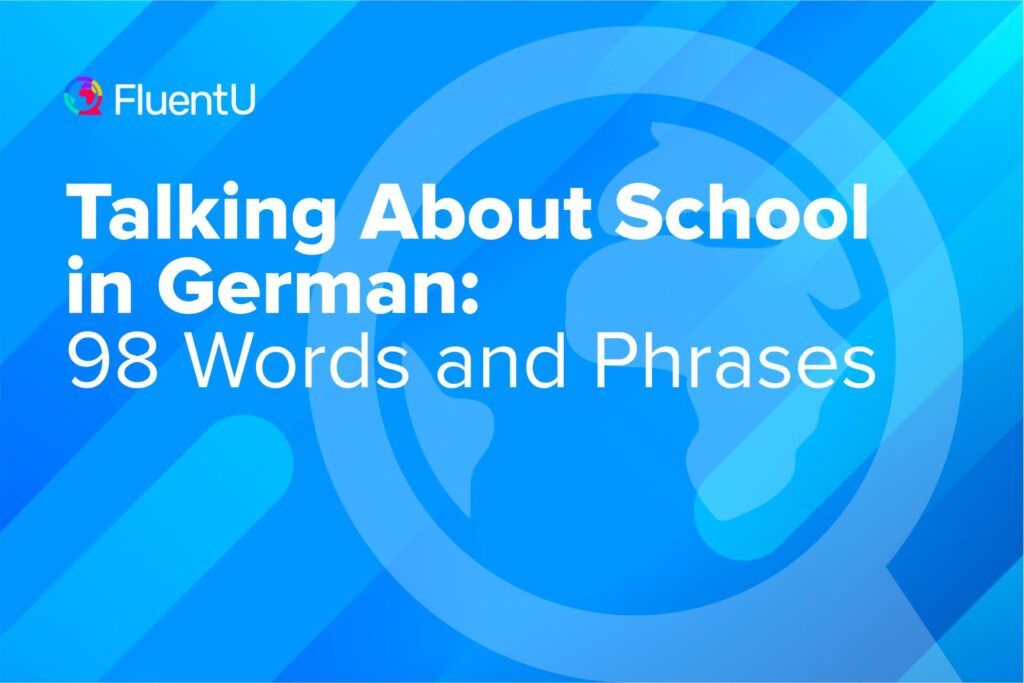
School is a commonly discussed topic for German language learners, so there’s lots of unique vocabulary you’ll find useful.
In this post, you’ll learn all the words and phrases you need to talk about school in German, from grade levels, to class subjects, to complaining about homework and more.
Download: This blog post is available as a convenient and portable PDF that you can take anywhere. Click here to get a copy. (Download)
Basic School Vocabulary in German

Here are some key terms you might need to know to talk about school in German:
| German | English |
|---|---|
| die Schule
| school |
| die Stunde | period/hour |
| die Pause | break |
| die Hausaufgaben | homework (plural) |
| langweilig | boring |
| interessant | interesting |
| schwer / kompliziert | tough |
| einfach / leicht | easy (The antonym pair Schwer and Leicht could mean "difficult" and "easy" or "heavy" and "light.") |
| die Prüfung | exam |
| bestehen | to pass |
| durchfallen | to fail |
| die Klasse | class / grade (e.g. the seventh grade) |
| das Fach | subject |
| die Bildung | education |
| der Abschluss | graduation |
| die Klassenarbeit | classwork |
| das Zeugnis | certificate |
| der Lehrplan | curriculum |
| die Note | grade (e.g. I got a good grade) |
The German school curriculum is quite comprehensive with an emphasis on extracurricular activities. It also encourages students to take up unconventional fields such as sports, fashion, etc. as a full-time career.
The grading system in German education is cumulative. The grading scale ranges from 1 to 5, with 1 being the highest and anything lower than a 4 counting as a fail. The scores range in decimals of .3, .5 and .7. For example, a student could have grades such as 1.3, 2.5 and 3.7.
School Subjects

The German education system is quite practical and example-oriented. For instance, fractions in mathematics are taught with the help of cake-cutting.
Probability is quite an important topic in math and science classes. This all shouldn’t come as a surprise, though, given Germany’s preoccupation with certainty.
The subjects dealt with at school are pretty much the usual ones:
| German | English |
|---|---|
| die Physik | physics |
| die Chemie | chemistry |
| die Biologie | biology |
| die Mathe | math |
| die Geschichte | history (can also mean "story") |
| die Erdkunde / die Geografie | geography |
| die Literatur | literature |
| die Kunst | art |
| die Musik | music |
| die Fremdsprachen | foreign languages |
| der Sport | sport / P.E. |
| die Informatik | computer science |
| die Ethik | ethics |
| die Wirtschaftswissenschaft | economics |
| die Philosophie | philosophy |
| die Psychologie | psychology |
| die Soziologie | sociology |
| die Wahlkurs | extracurricular activity / optional class |
People at School

Here are some of the words for various people who you’ll find in a school, either working there or attending:
| German | English |
|---|---|
| der Student / die Studentin | male/female student (generally refers to students going to college, i.e. adult students) |
| die Schüler | pupils (young students) |
| der Klassenkamarad
/ die Klassenkameradin
| male/female classmate |
| der Lehrer / die Lehrerin | male/female teacher |
| der Schulleiter
/ die Schulleiterin | male/female principal |
| der Sekretär / die Sekretärin | male/female secretary |
| der Bibliothekar / die Bibliothekarin | male/female librarian |
| der Hausmeister / die Hausmeisterin | male/female janitor |
| der Schulberater / die Schulberaterin | male/female school counselor |
School Supplies and Materials

If you’re going to school in Germany or sending your kids to school there, you’re going to need to know the words for different school supplies. Here are some of the most common ones:
| German | English |
|---|---|
| die Schulsachen | school supplies |
| die Lehrmittel | teaching materials |
| die Schuluniform | school uniform |
| der Schreibtisch | desk |
| die Kreide | chalk |
| die Tafel | chalkboard |
| das Buch | book |
| der Stift | pen |
| der Bleistift | pencil |
| der Radiergummi | eraser |
| das Heft | notebook |
| der Spitzer | sharpener |
| die Schere | scissors |
| der Klebestift | glue stick |
| das Lineal | ruler |
| die Mappe | folder |
| der Ordner | binder |
| das Papier | paper |
| das Etui | pencil case |
| der Taschenrechner | calculator |
| die Büroklammer | paperclip |
| der Pinsel | the paintbrush |
| die Buntstifte | crayons |
| Schultasche | backpack |
A schoolbag plays quite an important role in a German child’s life. In fact, there’s a tradition called Schultüte (literally “school bag,”) where children starting school are given cone-shaped bags filled with chocolates and stationery.
In the old days, children were told that these bags grew on a special Schultütenbaum (schoolbag tree) in the teacher’s classroom, ready to be picked for the child’s first day of school.
Places in a School
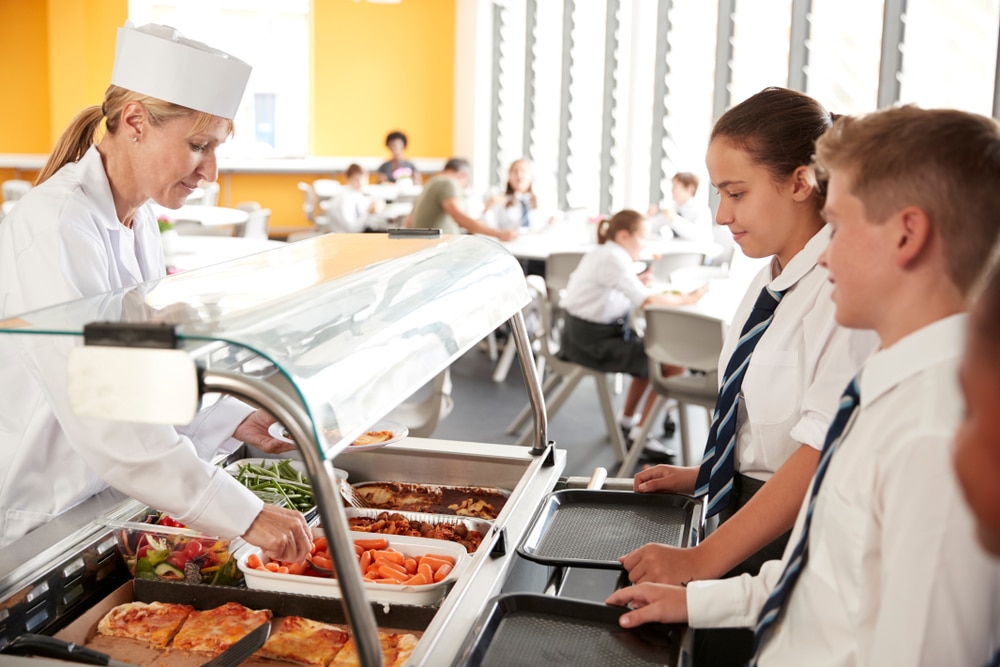
These words will help you find your way around a school in Germany, or help a German speaker find their way around if they’re visiting your school:
| German | English |
|---|---|
| das Klassenzimmer | classroom |
| die Kantine | cafeteria |
| der Schulhof | schoolyard |
| der Pausenhof | playground |
| die Bibliothek | library |
| das Labor | laboratory |
| die Turnhalle | gymnasium |
| der Computerraum | computer room |
| das Lehrerzimmer | teacher's lounge |
| das Direktorat | principal's office |
| die Aula | auditorium |
| der Flur | corridor |
| die Musikraum | music room |
| das Kunststudio | art studio |
| die Werkstatt | workshop |
| die Toilette | restroom |
| das Sportfeld | sports field |
| der Schulbus | school bus |
The German School System

In Germany, school attendance becomes mandatory starting at age six. The school policies and structure of each schooling level depend on where in Germany the student lives.
At the secondary level (after four to six years of elementary schooling), students can choose between one of four types of schools, which we’ll discuss below.
The following are the types of elementary schools one can find in Germany:
| Type of school | Explanation |
|---|---|
| Kindergarten (Pre-school education) | Usually for children between ages three and six. This isn't free and it's also not mandatory. |
| Grundschule (Elementary school) | From this level onwards, it becomes mandatory to attend school, for any child in Germany. Public schools are free and private schools have a fee. |
The secondary level (high school) that follows the primary level can be a choice from any of the below:
| Type of school | Explanation |
|---|---|
| Hauptschule (Main school) | This is typically a five-year school that prepares students for vocational training, trade jobs or public service work. |
| Realschule ("Real" school) | This provides a somewhat broader level of education than Hauptschule. Students can continue on to Gymnasium (below), vocational training or public service work. |
| Gesamtschule ("Together" school) | Where all subjects that are required for survival in life are taught together. This type of school isn't found everywhere in Germany. It essentially combines some elements of Hauptschule and Realschule. |
| Gymnasium (Grammar school) | Gymnasium isn't a gym but a type of school. It's considered to be the highest level of the German high school system. It emphasizes academic learning, in comparison to Hauptschule and Realschule. |
| Abitur (School graduation diploma) | These are the final set of examinations that a student takes after completing any of the high school systems stated above. |
| Ausbildung (Vocational/formal training) | A three- to four-year practical training program, where the student could learn and work on the side. This is considered the most practical degree in Germany, especially if one wants to get hands-on experience, on the job. After the Ausbildung, students are free to either pursue further studies by going to college or opt for vocational training in a field of their choice, such as teaching, nursing, baking, plumbing and electricity, machine building—the list is endless. |
Phrases for Talking About School in German
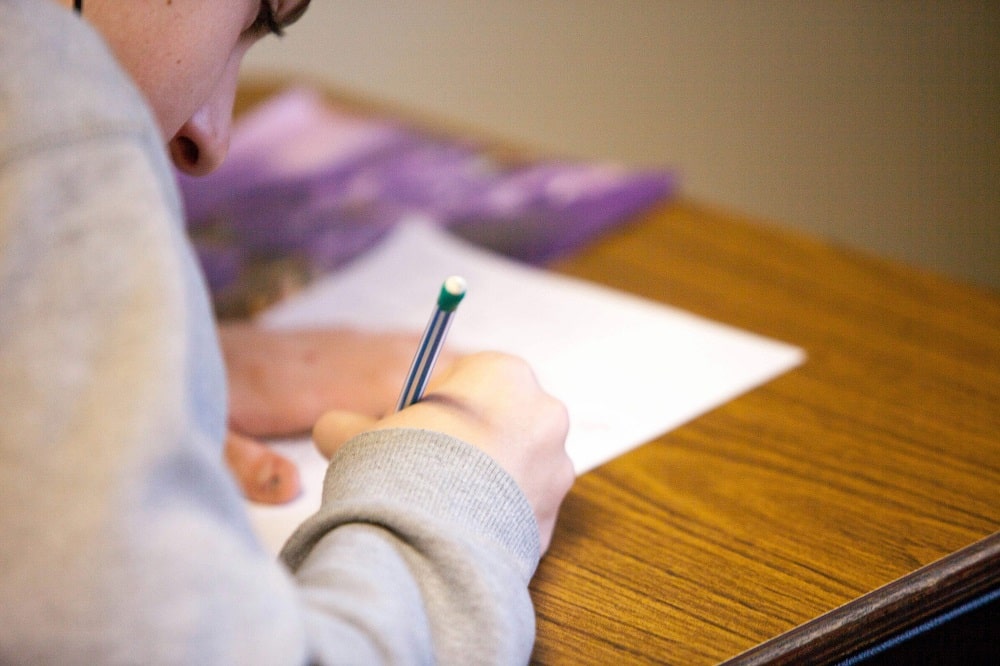
Here are some example sentences to show you how these vocabulary terms are used in context:
Ich gehe in die Schule.
(I go to school.)
*Note that this usually implies you work at or attend school. It’s somewhat more common to say zur Schule, when talking about your journey to the building itself. Notice also that with the use of the verb gehen (to go), we need to use the accusative case after the preposition in.
Ich bin in der Schule.
(I’m at school.)
*Note that this refers to your physical location, so you need to use the dative case after the preposition in.
Wann machen wir Pause?
(When do we take a break?)
*The Germans say Pause machen,
which literally translates to “to do a break.”
Ich mache Sport.
(I’m doing P.E. / I’m playing sports / I’m doing exercise.)
*Again, the Germans say Sport machen
(to play sport).
Welche Stunde haben wir jetzt? (Which period do we have now?)
Hast du die Hausaufgaben gemacht? (Have you done the homework?)
Der Lehrplan für das neue Schuljahr wurde überarbeitet. (The curriculum for the new school year has been revised.)
Deutsch ist einfach. (German is easy.)
Mathe ist schwer. (Math is tough.)
Der Unterricht war interessant. (The class was interesting.)
Der Unterricht war langweilig. (The class was boring.)
Ich habe eine gute Note bekommen. (I got a good grade.)
Ich habe die Prüfung bestanden. (I passed the exam.)
Ich habe die Prüfung durchgefallen. (I failed the exam.)
Du fielst in Geschichte durch. (You’re failing in history.)
Du bestehst bestimmt dieses mal. (You’ll pass this time for sure.)
For more practice with these vocabulary terms, you can look them up on FluentU and use the built-in learning tools, such as interactive captions and adaptive quizzes.
FluentU takes authentic videos—like music videos, movie trailers, news and inspiring talks—and turns them into personalized language learning lessons.
You can try FluentU for free for 2 weeks. Check out the website or download the iOS app or Android app.
P.S. Click here to take advantage of our current sale! (Expires at the end of this month.)
These words and phrases will pop up frequently in various conversations about school, so studying them can be very helpful!
Download: This blog post is available as a convenient and portable PDF that you can take anywhere. Click here to get a copy. (Download)
And One More Thing...
Want to know the key to learning German effectively?
It's using the right content and tools, like FluentU has to offer! Browse hundreds of videos, take endless quizzes and master the German language faster than you've ever imagine!
Watching a fun video, but having trouble understanding it? FluentU brings native videos within reach with interactive subtitles.
You can tap on any word to look it up instantly. Every definition has examples that have been written to help you understand how the word is used. If you see an interesting word you don't know, you can add it to a vocabulary list.
And FluentU isn't just for watching videos. It's a complete platform for learning. It's designed to effectively teach you all the vocabulary from any video. Swipe left or right to see more examples of the word you're on.
The best part is that FluentU keeps track of the vocabulary that you're learning, and gives you extra practice with difficult words. It'll even remind you when it’s time to review what you’ve learned.
Start using the FluentU website on your computer or tablet or, better yet, download the FluentU app from the iTunes or Google Play store. Click here to take advantage of our current sale! (Expires at the end of this month.)

